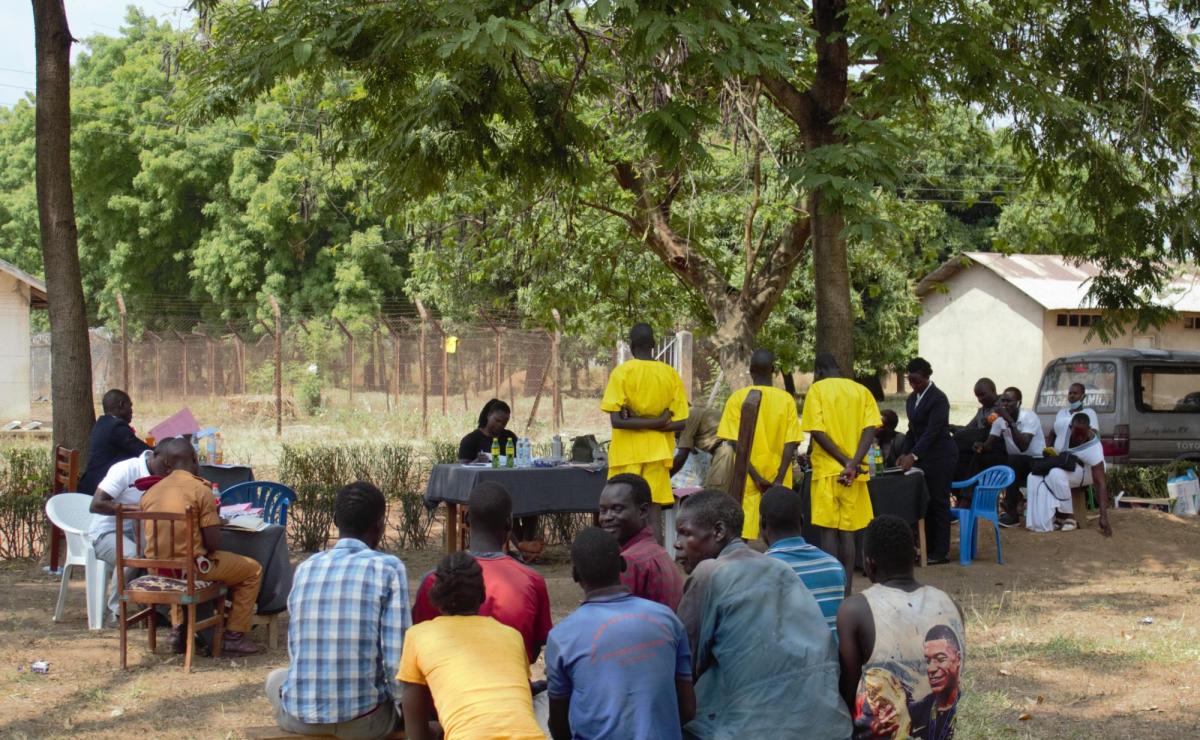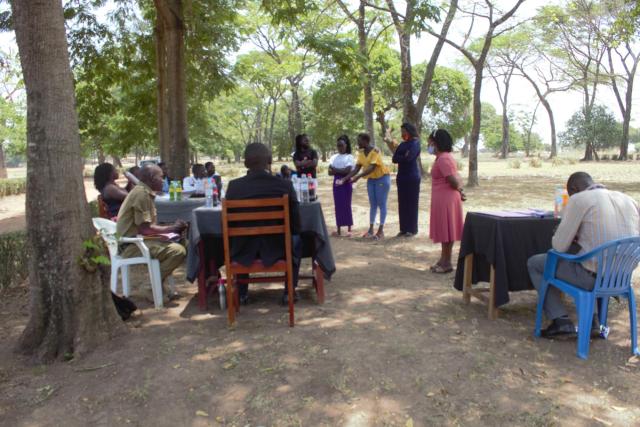Facilitating quicker access to justice for refugees

Uganda hosts over 1.4m refugees, mainly from neighboring war-torn South Sudan and the Democratic Republic of Congo, who are prone to crime as they get accustomed to the foreign law. These also pressure the already inadequate judicial resources, yet the courthouses are far from the settlements. Thus, beyond refugees' food and other protection needs, accessibility to justice is another hurdle for refugees and the host communities.
Therefore, to fill this gap, LWF, with funding from Bread for the World, partners with justice law and order sector institutional representatives in the districts to conduct court sessions in the communities.
Also known as mobile courts, the sessions are organised to offset the vast case backlog and provide victims quick access to justice.
The interventions are implemented under the Universal Periodic Review (UPR) Project born out of the Universal Periodic Review mechanism, which reviews the human rights records of all UN Member States.
In collaboration with the Courts of Law, Police, Prisons and other partners, LWF conducts mobile courts and other legal awareness sessions in South Western Uganda's Kamwenge refugee settlement and Northern Uganda's Pader district and Adjumani settlements in West Nile.
Subsequently, the judicial officials have reported a reduction in the case backlog, decongestion of prisons and significantly justice is brought nearer to the people as a solution to the long distances (up to 80 km) that refugees and host communities often had to travel to access formal courts.
"LWF has facilitated the mobile courts very well," says a member of the District Coordination committee in Rwamwanja settlement located in Kamwenge district.The project also provides free legal counsel to refugees imprisoned for breaking the law unknowingly due to the variance in the legal systems.
"I was arrested and charged with defilement when I married a 16-year-old girl, "James (not real names), a former refugee inmate, says he did not know it was illegal to marry a girl below 18 years in Uganda.
"It is allowed back in DRC, and I just learnt from the LWF lawyer who came to my rescue that it was illegal," adds James*. Since then, the lawyer's counsel has helped James* correct his mistake when he let the girl go and married a 22-year old.
"I have joined the Gender-based violence taskforce, which creates awareness about the effects of child marriages," he states. With the combined efforts of the Gender-based violence taskforce members like James*, who have reformed as a result of the project, the Refugee Welfare Committees (RWC) in settlements have also confirmed a significant reduction in the crime rate.
"We used to handle 20 Gender-based violence cases in one month in 2016 before the project started," notes an RWC leader in Pagirinya settlement. The settlement hosts South Sudanese refugees in the Adjumani district, north of Uganda. "We have seen the cases drop to less than five a month," he adds.
As LWF and partners advocate for human rights and reinforcement of the law, the high poverty level is still a stumbling block as many refugees choose to settle for money provided by those who commit crimes against them.


